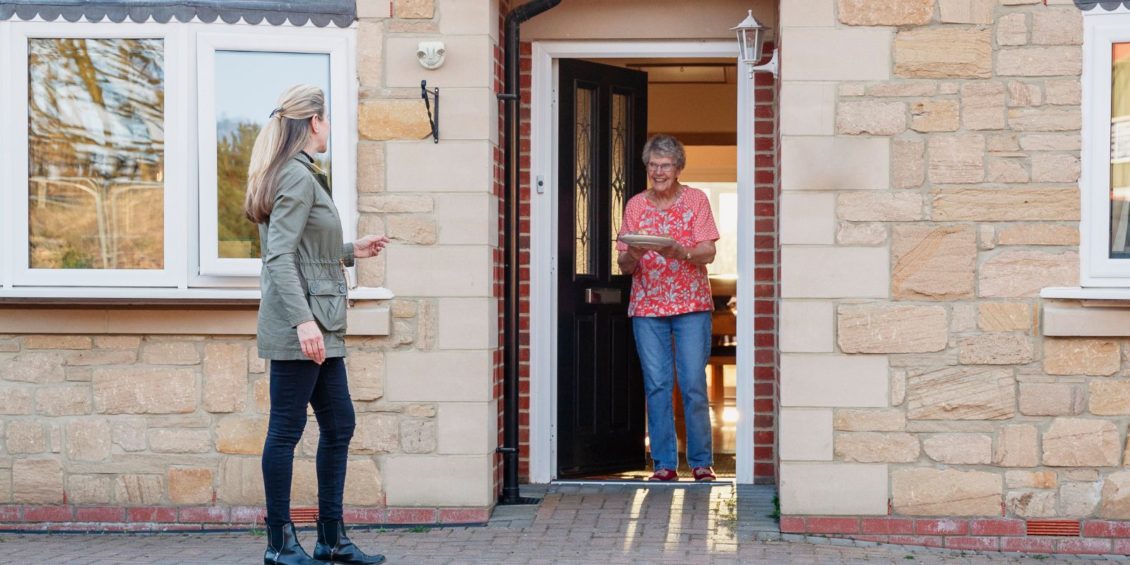Revisions to Community Meals Service, known as ‘Meals on Wheels’ will be considered next week to ensure a service is maintained in RCT in the face of rising inflationary food and energy costs and the financial pressures all councils will face next year. Cabinet are being asked to agree to consult on a preferred option to retain the service with an uplift in the daily charge and renewed service delivery model.
On Tuesday, November 29, Cabinet Members will consider a report outlining four options for the service’s future delivery. Increased financial pressures on local authorities have brought significant challenges into the medium term, and remodelling key services will contribute to addressing the estimated budget gap faced by the Council following the Chancellor’s Autumn Financial Statement.
The Community Meals Service delivers subsidised, meals to adults in their homes. Home deliveries have declined since the pandemic due to several factors – more choice of third sector providers and food delivery services, free transport to supermarkets, and, sadly, some elderly service users passing away. Deliveries have fallen from 145,694 in 2020/21 to a projected total of 120,047 this year.
Options for the future Community Meals Service
The Cabinet report outlines four options for the future of the service following a review and evaluation, and puts forward a preferred option. They include:
Option 1 – continue the service as it currently operates with increased charges (by 50p, £1 or £1.50 per meal), saving up to £190,000 per year.
Option 2 – in addition to Option 1, reorganise the existing internal service saving up to £489,000 per year.
Option 3 (preferred option) – reorganising the existing internal service and offering service users the choice between a hot or frozen meal to be delivered. It includes a 50p increase per meal, saving £427,000 per year.
Option 4 – end the service and support users to find alternative options. Including costs for transitional arrangements, it would save £546,000.
The preferred option would increase the 2 course meal price by 50p to £4.55, which remains a competitive price in comparison with neighbouring Local Authorities and private providers. Under this option staff would continue to undertake welfare checks to service users, including help with plating a meal if needed.
The revised service would operate at a total cost of £6.28 per meal, with each meal benefitting from a Council subsidy of £1.73.
Councillor Rhys Lewis, Rhondda Cynon Taf Council’s Cabinet Member for Education, Youth Participation and the Welsh Language, said:
“In response to the public spending challenges we face next year with increased service demand, food and energy inflation in addition to rising cost pressures across service areas, four options for the future of the Community Meals Service will be considered by Cabinet next week.
“We do not underestimate the importance of this service in supporting some of our most vulnerable residents, of which 86% are more than 70 years old; and this is why the preferred option proposes to retain the service.
“The preferred option would allow a hot meal service to continue for vulnerable residents, offer a frozen meal option should the resident wish, while it would retain important contact with service users. It would deliver a significant annual saving of £427,000 per year.
“The preferred option would increase meal costs by 50p to enable to service to continue to operate in the current financial climate, and despite this increase still remains very competitive when compared to private providers and neighbouring Local Authorities. Not all councils run a Community Meals service, and the preferred option would retain ours here in Rhondda Cynon Taf, ensuring it as a worthwhile service for users while ensuring it remains viable for the Council.
“If agreed by Cabinet on Tuesday, a comprehensive consultation would be undertaken where service users, carers, providers, staff and stakeholders can have their say on what is proposed, to inform a final decision by Cabinet in the future.”
On Tuesday, Cabinet could agree to a formal consultation on the preferred option, and this would be an extensive process which includes service users, carers, providers, staff and stakeholders. The process would include face-to-face interviews, meetings and online questionnaires.








Leave a Reply
View Comments